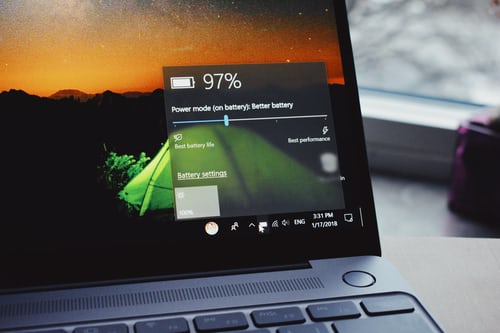Gone are those days when there used to be very fewer infections and threats to the internet. In this technological world, malware and cyber-attacks have massively grown stronger.
There are hundreds of variants of malicious infections like a virus, threat, malware, spyware, trojan, ransomware, keyloggers, and other malicious infections. The degree of sensitivity has grown stronger and the frequency of attacks on personal PCs and big organizations has massively increased in number.
The truth be told, there are always dangers around where people are hunting for your data, personal identity, and banking credentials for financial data thefts. These threats can be tackled for free with the help of one of the best free antivirus software for Windows 10. One such strong shield is the need of the hour to offer real-time protection on the system and keep your computer away from malicious infections.
Is Windows 10 Loaded with a Built-in Antivirus?
Considering the ongoing threat, Microsoft has released Windows Defender as the inbuilt antivirus program with the release of Windows 8 and the above versions. Windows Defender is a competent antimalware program that is rooted right with the Windows OS that was developed with an intent to have significantly low utilization of CPU resources and offer enough security against malware attacks.
In addition to this, Microsoft additionally refreshes its Windows Defender utility as often as possible with Windows Updates to keep the library up to date with the new virus definitions. These Windows Updates are released every Thursday to keep the most recent and more intense virus threads under control.
Apart from windows Defender, there is another inbuilt utility that comes with the Windows operating system known as Windows Firewall. Windows Firewall is a Microsoft Windows application that was introduced with the Windows XP SP2 to filter out the information that comes to your system through the Internet and block every potential threat that can harm your computer.
How Effective is Windows Defender?
Though it is claimed that Windows Defender’s protection is as similarly robust to the best antivirus program, you can stay with ease that it’s protecting your computer. The AV-Test’s latest report covering November and December 2019, it was proved that Microsoft Defender halted 100% of ‘known’ infections and threats and furthermore 100% of zero-day (ambiguous) outbreaks.
Do We Still Need an Antivirus Software?
But the question stands still, does Windows 10 Need Antivirus software? To be very honest, the appropriate response is Yes and No.
‘No’, if your internet usage is limited and you only use the computer for personal use. If you don’t browse through unknown sites if you don’t prefer online shopping, or perform net banking too often. If you don’t click on links within the emails you receive or download unknown attachments, you don’t need antivirus software. Microsoft will not remind you to install an antivirus program unlike it used to do with Windows 7 and earlier OS.
‘Yes’ if you have a high internet usage and you use the computer for business purposes. If you are stringently concerned about your data protection and business information. If there is a lot of data exchange and research involved in your daily tasks, if you follow a lot of links and download attachments in your emails, you should have one of the best free antivirus software to protect your computer.
Windows Defender is robust enough however it makes the operating system slow and gives performance-related issues at times. It drains your system resources when it is updating the virus vault and scanning the system for infections. If you experience any sluggishness in your computer due to virus scans, you should consider switching to an alternative.
The best part of Microsoft Windows Defender is that you can run a scan without being connected to the internet or you can also run Windows defender using a USB Pen Drive without being connected to the web.
If you still need added security, you can install an alternative on your PC. There are dozens of antivirus software available for Windows computers. But there is a trick to choose the best that is compatible enough for your computer and that fits in your budget.
How to Choose an Antivirus?
While choosing an Antivirus, ensure that the latest Antivirus definition library is updated to the most recent threats and updated to the core. Every paid version keeps updating their antivirus definitions on regular intervals.
A paid antivirus has the function of automatic updates that keeps updating the latest definitions and threats and knows particularly what to block and whatnot. It requires internet connectivity to automatically update the definitions.
It should have the latest malware removal tool installed to quarantine and remove the latest found threats. Free antivirus may have the capability to detect and block but not remove the threat.
It should have the latest Ransomware Protection installed on it to safeguard your valuable data and information.
A paid version of antivirus should have File Shredder that can ensure that whatever you delete is unrecoverable and not just go to your recycle bin.
Many paid antivirus software is far better than the best free antivirus software as they offer Firewall Protection, Password Managers, DNS Protection, Phishing protection, Antispam, System Optimization, and Browser protection.
Summing Up
If you are still thinking to go for free antivirus software, you can rely on Windows Defender and install one of the best free antivirus software available for 2020. The sensitivity of the need is totally dependent on the nature of the job and the confidentiality of your data that is available on the system.
Also Read: Free and Affordable Tools and Software for Photographers



